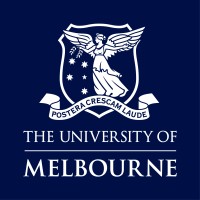Loading...
Australian University Jobs
Discover how well you match with a job using UniJobAI!
Closing: 24-Jun-2024
Expired
Job Summary
Dates
- 24-Jun-2024 - Closing Date
Responsibilities
- Provide leadership in curriculum development, implementation, and assessment within the Faculty of Engineering and Information Technology.
- Drive significant contributions towards learning and teaching, and research in engineering and computing education enhancing teaching capability and student engagement through evidence-based programs and projects.
Requirements
- Completed a PhD in engineering or computing education or a relevant discipline or be close to completion.
- Solid understanding of contemporary issues in teaching and learning in engineering education, particularly those relating to project-based learning and authentic learning activities and assessments.
Benefits
- Salary packaging
- Subsidised health and wellbeing services
- Fitness and cultural clubs
- Myki discounts
- 25% discount on graduate courses to staff and their immediate families.
Notes
- Role type: Full-time
- Continuing Faculty: Faculty of Engineering and Information Technology
- Department/School: Teaching and Learning Laboratory
- Visa sponsorship available for this position
Closing: 18-Jun-2024
Expired
Job Summary
Dates
- 28-May-2024 - Job Opening
- 18-Jun-2024 - Job Closing
Responsibilities
- Work collaboratively as a member of a distributed team of computational modelling specialists, within the Centre’s Modelling Science Project.
- Configure, run, and modify experimental versions of the Australian community climate model (ACCESS).
- Create and maintain technical documentation and contribute to the preparation of articles for publication.
- Work closely and collaboratively with other staff across the Centre, under the technical direction of a more senior staff member.
Requirements
- A postgraduate qualification in science, software engineering, or closely related fields.
- Demonstrated experience with software development in a version controlled scientific environment, in particular solving physical problems using numerical algorithms.
- Experience in computer languages such as: Fortran, Python and C/C++ in a Unix/Linux environment.
- Experience with MPI-based parallelisation and with high-performance computing.
Benefits
- Salary packaging
- Subsidised health and wellbeing services
- Fitness and cultural clubs
- Myki discounts
- 25% discount on graduate courses to staff and their immediate families.
Notes
- Role type: Full-time; Fixed-term for 3 years
- Visa sponsorship is not available for this position
- Working with Children Check required
Closing: 26-Jun-2024
Expired
Job Summary
Dates
- 27-May-2024: Job Advertised
- 26-Jun-2024: Applications Close
Responsibilities
- Lead and coordinate advanced computational analyses of fMRI data collected from ongoing and new research projects within the NHMRC Centre of Research Excellence.
- Integrate neuroimaging data with clinical, behavioural, and psychophysiological measures to identify biomarkers and predictors of treatment response.
- Prepare high-quality manuscripts for publication in peer-reviewed journals and present research findings at national and international conferences.
- Contribute to grant writing and funding applications to support ongoing research initiatives.
Requirements
- A Ph.D. in neuroscience, psychology, biomedical engineering, computer science, or a related field.
- Expertise in human neuroimaging techniques, particularly fMRI.
- Demonstrated experience in advanced computational analyses of neuroimaging data, including machine learning, network analyses, and graph theory.
- Proficiency in programming languages commonly used in neuroimaging research (e.g., Python, MATLAB, R).
Benefits
- Salary packaging
- Subsidised health and wellbeing services
- Fitness and cultural clubs
- Myki discounts
- 25% discount on graduate courses to staff and their immediate families.
Notes
- Role type: Full-time/Part-time (0.8-1FTE); Fixed-term for 24 months
- Visa sponsorship available for this position
- Working with Children Check required
Closing: 24-Jun-2024
Expired
Job Summary
Dates
- 28 May 2024 - Advertised
- 24 Jun 2024 - Closing
Responsibilities
- Manage day to day operations and work collaboratively as a member of a distributed team of research software engineers, within the Centres’ Modelling Science Project and CMS Team.
- Manage software development projects in climate and weather modelling from concept through to implementation and be responsible for the subsequent evaluation and testing.
- Provide recommendations for the ongoing management and continuous improvement of the systems such as providing technical support through the investigation, resolution and tracking of software issues and computational needs on NCI systems.
- Maintain extensive up to date knowledge of new and innovative methods in climate computing and where appropriate negotiate the use of third-party solutions in the Centre.
- Develop and maintain technical documentation and contribute to the preparation of articles for publication.
- Provide high level domain support and training to researchers to improve the computational skill level throughout the Centre, including developing a program of tutorials, training exercises, and example model configurations.
- Manage and implement WHS processes and safe work procedures for the computational aspects of the facility including ensuring hazards and risks are identified and controlled for tasks, projects and activities that pose a health and safety risk within your area of responsibility.
- Align with and actively demonstrate the UNSW Values in Action: Our Behaviours and the UNSW Code of Conduct.
- Cooperate with all health and safety policies and procedures of the university and take all reasonable care to ensure that your actions or omissions do not impact on the health and safety of yourself or others.
Requirements
- A degree with a depth of subsequent relevant experience or an equivalent level of knowledge gained through any other combination of education, training and/or experience.
- Demonstrated programming skills and experience in a Unix/Linux environment, particularly in Python, FORTRAN or other programming languages used. Experience in working in a HPC environment and/or parallel programming would be viewed favourably as would familiarity with GPU technology and experience with GPU accelerators in python.
- Demonstrated capacity to assist and manage team members and students with broad technical and project planning advice, including analysing data, and optimising computational protocols.
- Specific domain expertise, which may include machine learning, high-resolution atmospheric, or data science.
- Knowledge and technical experience in the design and application of supercomputing and data management solutions for climate science
- Knowledge of the Australian climate computing framework, including key systems and stakeholders
- High level analytical and problem-solving skills
- Demonstrated knowledge of best practices in software engineering. Experience with modern version control software, e.g. git and GitHub, is highly desirable.
- Proven ability to work flexibly, prioritise work to meet conflicting deadlines, and to quickly adapt to new environments including a demonstrated ability to use initiative, apply sound judgement and work with minimum supervision individually and within a team environment.
- Excellent verbal and written communication skills
- An understanding of and commitment to UNSW’s aims, objectives and values in action, together with relevant policies and guidelines.
- Knowledge of health and safety responsibilities and commitment to attending relevant health and safety training
Benefits
- missing
Notes
- This position is primarily funded by the Australian Research Council Centre of Excellence for the Weather of the 21st Century. The incumbent will contribute to and benefit from being a part of a supportive and vibrant Centre community which offers unparalleled networking and professional development opportunities. The Centre is a major seven-year initiative funded by the Australian Research Council. It is a consortium of 24 partners led by Monash University in partnership with The University of Melbourne, The University of New South Wales, The Australian National University, and the University of Tasmania.
- The Centre’s team-based research is focused on how Australia’s weather is being reshaped by climate change. The Centre conducts blue-sky research with real-world applications for communities, industry and government. The research program is made up of six integrated Centre Projects: Weather System Dynamics; SSTs, Modes of Variability and Weather Systems; Weather Systems in a Warmer World; Weather Resources; High-Impact Weather; and Modelling Science. This position forms an integral part of the Centre Project: Modelling Science and the research software engineer will help the Centre achieve its ambitions for a new high-resolution coupled modelling system and will assist Centre researchers through a comprehensive training and support program.
Extras
- The incumbent will liaise with research staff and students within each of the five partner universities of the Centres, NCI, Australian Earth System Simulator (ACCESS-NRI), Bureau of Meteorology and CSIRO and overseas institutions. As such the incumbent will demonstrate a strong understanding of major global and Australian climate modelling initiatives and interactions between a range of organisations and model suites.
Closing: 30-Jun-2024
Expired
Job Summary
Dates
- 30 Jun 2024 - Closing Date
Responsibilities
- The Data and Research Computing Specialist will play a key role in supporting scientists across SAiGENCI, in particular the Computational Systems Oncology team.
- This role will be responsible and accountable for the effective communication of computational requirements and needs to the University of Adelaide’s ITDS and Research Computing teams.
Requirements
- Postgraduate degree preferably in information management, information technology, computing, or data-intensive research discipline.
- Strong technical knowledge and expertise in research computing infrastructure configuration and management.
- Experience in designing solutions for processing large sensitive data sets on shared HPC systems.
Benefits
- Fixed term, full-time position available for 12 months with the possibility of extension.
- Salary packaging, flexible work arrangements, professional development programs, on-campus health clinic, gym, and fitness facilities.
Notes
- Job no: 512920
- Fixed term - Full-time
- HEO8
- Together with the University of Adelaide’s ITDS and Research Computing teams, the South Australian immunoGENomics Cancer Institute (SAiGENCI) is inviting applications to apply for the Data and Research Computing Specialist position.
- Applicants should have a postgraduate degree or an equivalent combination of relevant experience and/or education/training.
Closing: 20-Jun-2024
Expired
Job Summary
Dates
- October 2024
- 20-Jun-2024
Responsibilities
- Develop statistical methodology for contemporary and application-driven challenges in high-dimensional Bayesian statistics
- Contribute to the supervision of an associated doctoral research studentship
- Conduct research in statistical methodology and statistical computing within the initiative
Requirements
- Track record of high-quality research in statistical methodology, focusing on areas of Bayesian computations
- Experience in effective Bayesian computational strategies such as Markov Chain Monte Carlo and Sequential Monte Carlo for high-dimensional statistical models
Benefits
- Fixed Term, Full Time Appointment (2 years)
- Level A salary with superannuation benefits
Notes
- The post complements the expansion in Statistics research through the appointment of the TIBRA Foundation Chair in Mathematical Sciences
- Join the University’s flagship research intensive institute in statistics, the National Institute for Applied Statistics Research Australia (NIASRA)
Closing: 01-Nov-2024
Expired
Job Summary
Dates
- 07 Jun 2024 - 01 Nov 2024
- Job opening and closing date
Responsibilities
- The successful candidate will achieve the research aims via a variety of research modalities including research, communication of research and Deakin’s PhD award criteria.
Requirements
- Applicants must meet Deakin's PhD entry requirements, be enrolling full time and hold an Honours degree (First Class) or an equivalent standard Master's degree with a substantial research component. Please refer to the entry pathways to higher degrees by research for further information.
- The successful applicant will have an undergraduate or postgraduate degree in Computer Science, Physics, Mathematics, Engineering, or related areas. This position is open to domestic candidates only (Australian PR/citizen, or New Zealand citizen).
- Some prior experience with quantum computing is desirable, though not required.
- Programming skills and mathematical maturity are required.
Benefits
- The PhD will be of 3 years duration (with possible extension to 3.5 years)
- The project will work with Deakin researchers and Cisco researchers; it is planned that this will involve a funded internship in the Cisco Quantum Lab (for up to 6 months).
Closing: 23-Jun-2024
Expired
Job Summary
Dates
- Posted 10 Days Ago
Responsibilities
- The role is primarily responsible for preparing, delivering, facilitating, and assessing subjects and to ensure students are provided with the best opportunity to attain learning outcomes and satisfactorily complete their assessment tasks.
- An Associate Professor at Torrens is expected to make outstanding contributions to the University through teaching, research, scholarship, external engagement and academic leadership.
- An Associate Professor has the responsibility to provide disciplinary leadership through scholarship, curriculum development, academic development, and the facilitation of excellent teaching and learning practice and development.
- They can be called upon to stimulate and provide strategic advice on critical issues and areas of decision making to lead, drive and support change for our institution’s future and the future of the communities we serve.
- They shall respect and advocate for their responsibilities as they work individually and collectively to develop a positive and constructive institutional professorial culture through engagement and exposure to awareness and reflection opportunities.
- They will also work to inculcate a culture of excellence in teaching, research, and leadership.
- An Associate Professor is pivotal in contributing to the development of research and research output and in developing Early Career Researchers (ECR’s) and Mid-Career Researchers (MCR’s) to ensure and enable academic development.
- It is expected that the position must contribute to the institution through industry/professional engagement and mentoring or leading other Academic employees.
- Additional responsibilities may include leading specialist academic projects that contribute more broadly to developing an academic culture focused on excellence.
- Where required, it is expected from the position to be actively involved in the institutional processes relating to academic administration, management, and governance. At this stage, there is no leadership responsibility attached to the position (but there will likely be down the track).
Requirements
- A Phd along with a high-quality track record in research in HCI or human-centred computing
- Demonstrated knowledge of specific subject areas combined with a broad disciplinary background enabling contributions to teaching.
- A strong track record of high-quality teaching
- Demonstrated ability to work collaboratively in a team environment and commitment to continuous professional development
- Demonstrated ability to work competently and harmoniously with colleagues and students of all cultures and backgrounds
- Demonstration of mentoring junior academic staff
- Evidence of external research income either with industry, government bodies or through other competitive grants
- Understanding of academic governance and quality assurance at a subject and course level
Benefits
- Flexible work arrangements
- Opportunities for professional development and career progression
- Support for personal passions, development, and wellbeing
- Positive workplace environment that fosters a global, entrepreneurial mindset
- Belonging to a team of researchers making a difference to society
- Building on an academic culture connected to industry and community
- Opportunities to innovate across teaching and research
- Access to internal opportunities that promote professional growth
Closing: 30-Nov-2024
Job Summary
Dates
- Opening Date: 22-Aug-2024
- Closing Date: 30-Nov-2024
Responsibilities
- Teaching undergraduate and postgraduate courses in Computer Science and Engineering
- Designing and developing curriculum to enhance educational experience
- Implementing educational technologies and online delivery methods
- Supporting and inspiring students from diverse backgrounds
- Driving educational excellence within the teaching and learning communities
Requirements
- PhD in a related discipline or relevant work experience
- Experience in teaching and learning design and delivery
- Knowledge of industry or experience in work-integrated learning
- Interpersonal and organizational skills
- Commitment to student equity, diversity, and inclusion initiatives
Benefits
- Competitive salary with superannuation
- Opportunity to specialize in education within a prestigious institution
- Contribute to shaping the future direction of computing in Australia
- Join a community of scholars supporting students in achieving their potential
- Access to flexible work options and workplace adjustments for individuals with disability
Notes
- Applications close on 30th November 2024
- UNSW is committed to equity, diversity, and inclusion in the workplace
- Candidates from diverse backgrounds are encouraged to apply
- Maternity or primary carers leave available for eligible staff
- University reserves the right not to proceed with any appointment
Closing: 30-Nov-2024
Job Summary
Dates
- Opening Date: 22-Aug-2024
- Closing Date: 30-Nov-2024
Responsibilities
- Teaching undergraduate and postgraduate courses
- Conducting independent research
- Delivering excellent teaching
- Initiating development of experimental approaches to teaching and learning
- Supporting learning progression of students
- Managing course administration
- Maintaining professional development
- Engaging in individual and collaborative research
- Creating scholarly impact
- Contributing to the development of grant applications
- Mentoring and guiding students and colleagues
Requirements
- PhD in a related discipline
- Relevant work experience
- Commitment to keeping up-to-date with discipline knowledge
- Experience in teaching and learning design and delivery
- Knowledge of industry or work-integrated learning
- Track record in research with high-quality outcomes
- High-level communication and networking skills
- Ability to work in a team
- Understanding and commitment to organizational values and policies
- Knowledge of health and safety responsibilities
Benefits
- Flexible work options
- 26 weeks of fully paid maternity or primary carers leave
- Support services for research, teaching, and career development
Notes
- Applications must be submitted online
- Encouragement to apply even if experience does not align 100%
- Inclusion and diversity commitment
- University reserves the right not to proceed with any appointment
Closing: 29-Sep-2024
Expired
Job Summary
Dates
- Opening Date: Not Available
- Closing Date: 29-Sep-2024
Responsibilities
- Develop, design, and deliver innovative and engaging teaching materials for tutorials, demonstrations, and workshops.
- Inspire and educate students with a creative approach to teaching.
- Conduct meaningful research and share insights through publications and presentations.
- Engage with the academic community and build lasting relationships.
- Collaborate with colleagues and contribute to the School's goals.
Requirements
- Engaged as a casual academic for at least 2 teaching sessions within the previous 2 years at an Australian Higher Education institution.
- Hold or have submitted all requirements for a PhD or other relevant Level 10 AQF qualification.
- Have not previously held an ongoing position with an Australian Higher Education provider in the previous 3 years.
- Submit evidence of teaching results, such as Student Feedback on Teaching survey outcomes.
Benefits
- Opportunity to be part of a sector-leading program that strengthens career pathways for casual academic staff.
- Professional development and training over the confirmation period to support stable, ongoing employment.
- Join a dynamic academic community with opportunities for collaboration and research.
Notes
- Interviews are likely to be scheduled between Monday 21st and Thursday 24th October 2024.
- Working Rights in Australia - Eligibility is required at the time of application.
- Use the attached CV/Resume template with your application.
Closing: 11-Sep-2024
Expired
Job Summary
Dates
- Opening Date: Not Available
- Closing Date: 11-Sep-2024
Responsibilities
- Lead high-quality research with limited supervision.
- Produce influential findings and prepare manuscripts for publication in top-tier journals.
- Collaborate with international and interdisciplinary teams to disseminate results through conference papers, seminars and impactful presentations.
- Engage in collaborative project meetings and work closely with global partners.
- Ensure the continuous advancement of knowledge in the field.
- Contribute to successful grant applications for future research endeavors.
Requirements
- PhD in computer engineering, biomedical engineering, neuroscience, physics or a related discipline.
- Demonstrated experience with neuroimaging data processing, computational methods and statistical analysis.
- Strong skills in manuscript preparation and research publication.
Benefits
- Access to quality research facilities and infrastructure.
- Opportunities for international collaboration.
- Support for flexible and hybrid working arrangements.
Notes
- Your application must address the selection criteria.
- Diversity is one of our greatest strengths at Monash.
- Your employment is contingent upon satisfactory completion of all pre-employment and/or background checks required for the role.
- Contact hr-recruitment@monash.edu for reasonable adjustments.
Closing: 29-Sep-2024
Expired
Job Summary
Dates
- Opening Date: Not Available
- Closing Date: 29-Sep-2024
Location
- Sydney, NSW
Salary
- Not Available
Responsibilities
- Conduct independent research in the field of Computer Science and Engineering.
- Deliver excellent teaching and pedagogy development.
Requirements
- Experience in teaching and research in Computer Science and Engineering.
- Ability to develop innovative teaching methods.
Benefits
- Opportunity for career advancement within the university.
- Access to professional development programs.
Notes
- Join an organisation that is shaping the future direction of Computer Science in Australia.
Closing: 03-Sep-2024
Expired
Job Summary
Dates
- Opening Date: Not Available
- Closing Date: 03-Sep-2024
Location
- St Lucia Campus
Salary
- The full-time equivalent base salary will be in the range $78,871.35 - $105,004.02, plus a generous super allowance of up to 17%. The total FTE package will be up to $92,279.48 - $122,854.70 annually.
Responsibilities
- Assist in the development of new programs and course material in computer science, software engineering and associated topics, by consulting with program advisors and stakeholders, ensuring courses are engaging, relevant and contemporary.
- Teach across different settings and collaborate on educational practice and innovative curriculum design including online learning and alternative teaching methods.
- Undertake teaching, including collaboration on course coordination, lecturing, tutoring, consultation and the preparation of teaching and assessment materials and marking for undergraduate and postgraduate levels.
- Maintain and improve the quality of courses as measured through evaluation instruments to meet industry and educational standards.
- Undertake a range of activities which contribute to maintaining currency within the discipline.
- Strengthen student engagement and student experience through collaboration and the provision of high-quality service to students, including academic consultation, counselling and advice.
- Gather evidence of teaching effectiveness to improve the quality of courses and teaching and engage in professional development to enhance teaching effectiveness.
- Understand and apply University rules relevant to teaching and learning practice.
- Consistently undertake activities that develop a knowledge base of effective discipline-specific pedagogical practices.
- Work with colleagues in the development of quality projects which explore, test, implement and communicate new or improved approaches towards pedagogical practices.
- Participate in applications for internal and external funding to support projects and activities promoting improved pedagogies.
- Contribute to educational partnerships with peers and/or students and/or external partners that result in quality outputs.
- Develop an emerging profile in teaching and the scholarship of teaching and learning.
- Demonstrate and promote UQ values.
- Shows leadership of self through collaboration and active participation in priority activities for the Faculty.
- Contribute to educational mentorship and development of teachers.
- In collaboration with the EAIT Associate Dean (External Engagement) and EAIT Manager, International Engagement develop and maintain external links by cultivating relationships with high schools and EAIT international partners.
- In collaboration with the EAIT Associate Dean (External Engagement) and EAIT Manager, International Engagement determine priority international partners.
- In collaboration with the EAIT Associate Dean (Academic) and the EAIT Manager, International engagement develop relevant academic strategies and programs to improve student experiences outcomes with these institutions.
- In collaboration with the EAIT Associate Dean (Academic) monitor international articulation students’ academic progression.
- Attend and assist pre-departure, international student orientation, farewell, and deliver events for incoming EAIT cohort students; monitor the need for further ongoing support.
- International travel and other related duties as required.
- Any other duties as reasonably directed by your supervisor.
Requirements
- Completion (or near completion) of a PhD in computer science, computer engineering or a cognate discipline, or equivalent combination of relevant experience and/or education/training.
- Demonstrated knowledge of computer science or computer engineering education and curriculum design.
- Demonstrated ability to coordinate and teach undergraduate classes in a variety of settings, including small and large groups, studio-based teaching and individual project supervision.
- Skills in all aspects of teaching practice, including course design.
- Well-developed communication, interpersonal and consultative skills, and the ability to work collaboratively with colleagues from a multidisciplinary background.
- Ability to work with culturally diverse student cohorts.
- A profile of professional expertise that complements and/or supplements the expertise that currently exists within the School and the broader University.
- Work Rights: Visa sponsorship may be available for this appointment.
- Mandatory Immunisations: It is a condition of employment for this role that you will be required to provide evidence of immunisation against certain vaccine preventable diseases.
- Background Checks: All final applicants for this position may be asked to consent to a criminal record check.
Benefits
- Being part of a Group of Eight university.
- Recognition of prior service with other Australian universities.
- Up to 26 weeks of paid parental leave.
- 17.5% annual leave loading.
- Flexible working arrangements including hybrid on site/WFH options and flexible start/finish times.
- Genuine career progression opportunities via the academic promotions process.
Notes
- If you are relocating from interstate or overseas, UQ will support you with the visa sponsorship process and a relocation support package.
- For more information, contact Professor Aleksandar Rakic via email or for application queries, contact talent@uq.edu.au stating the job reference number in the subject line.
Closing: Not specified
Job Summary
Dates
- Opening Date: Not Available
- Closing Date: Not Available
Location
- Sydney, NSW
Salary
- Not Available
Responsibilities
- Conduct independent research in Computer Science and Engineering.
- Deliver excellent teaching with a focus on pedagogy development.
Requirements
- PhD in Computer Science, Engineering, or a related field.
- Demonstrated experience in teaching and research in Computer Science and Engineering.
- Strong communication and interpersonal skills.
Benefits
- Opportunity to shape the future direction of Computer Science in Australia.
- Access to professional development and research funding.
- Supportive academic environment.
Notes
- Multiple opportunities available.
Closing: 22-Sep-2024
Expired
Job Summary
Dates
- Opening Date: 06-Sep-2024
- Closing Date: 22-Sep-2024
Location
- Adelaide, South Australia, 5005 Australia
Salary
- (Level B) $111,031 to $131,335 per annum plus an employer contribution of up to 17% superannuation applies.
Responsibilities
- Review and re-design a range of courses at post-graduate level for the Master of Data Science (Applied) courses.
- Support the teaching of undergraduate and postgraduate programs in Computer Science.
- Collaborate with a large team of educators in education, research, and industry collaboration.
Requirements
- PhD in statistics or data science, computer science, or a closely related discipline, or equivalent qualification and experience.
- Ability to undertake course reviews using an evidence-based approach at postgraduate level.
- Commitment to the use of evidence-based pedagogies that promote student engagement.
- Experience in online and blended course development and delivery.
- Student-focussed approach to education.
- Record of success in delivering quality teaching at the tertiary level and responsibility as course coordinator.
- Commitment to the principles of equity, diversity, and inclusion.
Benefits
- Salary packaging
- Flexible work arrangements
- High-quality professional development programs and activities
- On-campus health clinic, gym, and other fitness facilities.
Notes
- The position is fixed term, full time for a period of 6 months, with the opportunity to work hybrid/remote.
- The University of Adelaide is an Equal Employment Opportunity employer.
Closing: 12-Sep-2024
Expired
Job Summary
Dates
- Opening Date: 14-Aug-2024
- Closing Date: 12-Sep-2024
Location
- Crawley, Western Australia
Salary
- $113,934 - $134,824 p.a. plus 17% superannuation
Responsibilities
- Undertake independent teaching in the area of Computer Science and Software Engineering.
- Act as a unit-coordinator and lecturer for a range of units in undergraduate and postgraduate programs.
- Contribute to ongoing development of the Department's academic programs.
- Make a long-term contribution to teaching excellence in the Department.
Requirements
- PhD in Computer Science or a relevant academic field or other higher professional qualifications appropriate to the discipline.
- Demonstrated ability to develop and deliver innovative teaching approaches, assessment, and materials for units and courses.
- Commitment to inclusive teaching practices to extend equality of opportunity for all learners.
- Participation in education/research leadership in public engagements that promote research and/or education outcomes, government, and industry.
- Ability to relate well to staff and students at all levels and commitment to equity and diversity principles.
- Ability to contribute positively to team, school, and wider University activities.
Benefits
- Flexible working options considered.
- 26 weeks paid parental leave after one year and 36 weeks after five years continuous service, regardless of gender.
- 4 weeks annual leave with the option to purchase more.
- 13 weeks long service leave after seven years.
- Salary packaging options.
- 17% superannuation, with the option to reduce to the minimum super guarantee.
- 25% off UWA full fee courses, discounted health insurance, and convenient on-campus childcare options.
- Incremental progression based on 12 months continuous service.
Notes
- This position is open to international applicants.
- Applicants are required to address the selection criteria in their submission.
Closing: 08-Sep-2024
Expired
Job Summary
Dates
- Opening Date: Not Available
- Closing Date: 08-Sep-2024
Location
- Ho Chi Minh City
Salary
- Hourly rate: 435,000 VND gross
Responsibilities
- Prepare and set up lab equipment and facilities for lab activities
- Support students during laboratory activities and in providing direction and guidance on course-related lab and assignments
- Prepare and grade assessments
- Reinforce lessons presented by teachers by reviewing material with students one-on-one or in small groups
- Support in-class activities as part of lab/tutorial/practical sessions under the supervision of Course Coordinator and/or class instructor
- Prepare and run training workshops for students as required by the school and program
- Participate in school and program-related activities as required by the school and program
Requirements
- Master’s Degree in Electronic & Computer Systems Engineering or relevant discipline
- Ability to use Electronic & Computer Systems common lab equipment & facilities (Oscilloscope, Function Generator, Multimeter, PCB maker, 3D printers, etc.), circuit components and development boards
- Ability to explain complex ideas and concepts in a way easy to increase understanding and comprehension
- Excellent communication skills
- Strong interpersonal skills with the ability to listen well, motivate and encourage
- Ability to display appropriate behaviours in line with the position, as per the RMIT Behavioural Capability Framework (Connectedness, Commitment to Excellence – Improve and Simplify; Imagination and Innovation; Impact; Inclusion; Agility)
- English is the language of teaching and communication at RMIT Vietnam. For this role, the minimum requirement is IELTS 6.5.
Benefits
- Private medical insurance
- RMIT Vietnam has been honoured with the respectable HR Asia Award as Top Employer To Work For in Asia.
Notes
- RMIT Vietnam is committed to excellence, innovation, and social responsibility.
- RMIT University has a global reputation and ranks 123rd globally and 10th in Australia in QS World University Rankings 2024.
Closing: 08-Sep-2024
Expired
Job Summary
Dates
- Opening Date: Not Available
- Closing Date: 08-Sep-2024
Location
- Ho Chi Minh City
Salary
- Competitive salary package and allowances. Expatriate candidates: Generous relocation allowance. Educational support up to US$20,000 per child annually, up to 2 children per family; private insurance coverage for staff and family; annual health checkup; Work Permit for staff, Visa and temporary resident cards for family members. Local candidates: 13th month Tet bonus + private medical insurance (for you and your dependents) + annual health check.
Responsibilities
- Undertake independent teaching undergraduate level courses in the Bachelor of Engineering (Electronic and Computer Systems Engineering) program.
- Writing course materials; teaching lecture, lab, and tutorial sessions; helping students; designing, conducting, and grading assessments; implementing improvements informed by course evaluation activities and student feedback.
- Undertake research at an internationally competitive level evidenced by peer review publications, funding applications and supervision of Higher Degree by Research scholars.
- Undertake administration duties, which may include course coordination role.
- Adhere to the requirements of the Academic Expectations and Development Framework of RMIT Vietnam.
Requirements
- PhD or equivalent relevant Doctoral qualification
- Proven teaching proficiency and curriculum development in one or some of the following areas: Network Engineering, Network Design and Management, Enterprise and Cloud network, Network Performance and Security.
- Demonstrated ability to prepare and deliver programs at undergraduate level, including online delivery, and the ability to produce high quality curriculum or program materials.
- Ability to undertake course coordination role.
- Demonstrated capacity to work effectively with and to negotiate sensitively with students especially on issues related to effective learning.
- Recent and sustained performance regarding student outcomes, student experience and feedback; combined with experience and skill in a range of teaching settings.
- Recognised research profile including substantial record of research outputs in high quality journals.
- Ability to operate within own discipline and cross-disciplinary/multidisciplinary teams to achieve department and University strategic outcomes.
- Ability to work with external partners, industries, organisations, and communities and can operate effectively to address complex issues or seek opportunities.
- English proficiency requirement: IELTS (Academic) with a score of at least 7.0 with no competency less than 6.5 (or equivalent).
Benefits
- Generous annual leave, career leave and public holidays (Christmas and Tet Holidays)
- Professional development and career advancement
- Access to state-of-the-art facilities and resources
- A vibrant and diverse campus life and more!
Notes
- All foreign employees must adhere to the requirements for obtaining a valid visa and work permit in Vietnam. These requirements are mandated by the Government and may be over and above the mandatory requirements and key selection criteria.
- RMIT Vietnam accepts zero tolerance to non-adherence of the immigration laws of Vietnam.

Expression of Interest - Computing and Information
The University of Melbourne
The University of Melbourne, Grattan Street, Parkville, Victoria, 3010, Australia
Similar Jobs
Closing: 04-Nov-2024
Expired
Job Summary
Dates
- Opening Date: 03-May-2024
- Closing Date: 04-Nov-2024
Location
- The University of Melbourne, Grattan Street, Parkville, Victoria, 3010, Australia
Salary
- Salaries ranging from $114,645 to $217,805 per annum (pro-rata for part-time), along with an employer contribution of 17% to superannuation.
Responsibilities
- Join the School of Computing & Information Systems talent pool for future opportunities.
- Contribute to research and teaching across various information technology disciplines including Software Engineering, Information Systems, and Computer Science.
Requirements
- Academic qualifications in relevant fields such as Computing, Information Technology, or related disciplines.
- Demonstrated research and teaching excellence in the field of computing and information systems.
Benefits
- Generous leave provisions.
- Salary packaging options.
- Health and well-being services.
- Discounts on graduate courses.
Notes
- Applicants will be contacted when suitable projects arise.









